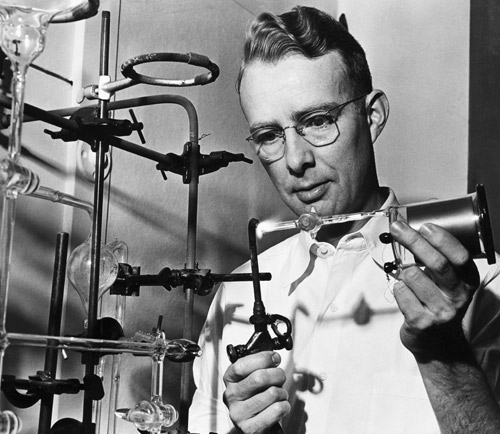Alvarez, Luis Walter (1911–1988)

Luis Alvarez was an American high-energy physicist at the University of California, Berkeley. He won the 1968 Nobel Prize in Physics for developing the liquid-hydrogen bubble chamber, a device he used to identify many very short-lived particles known as resonances. He also helped build the first proton accelerator. Alvarez worked on the Manhattan Project and invented the radar guidance system for aircraft landings.
Together with his son Walter and others, Alvarez championed the idea that the mass extinction at the end of the Cretaceous period (Cretaceous-Tertiary Boundary) was caused by the impact of an asteroid – a thesis that has now met with widespread acceptance.


